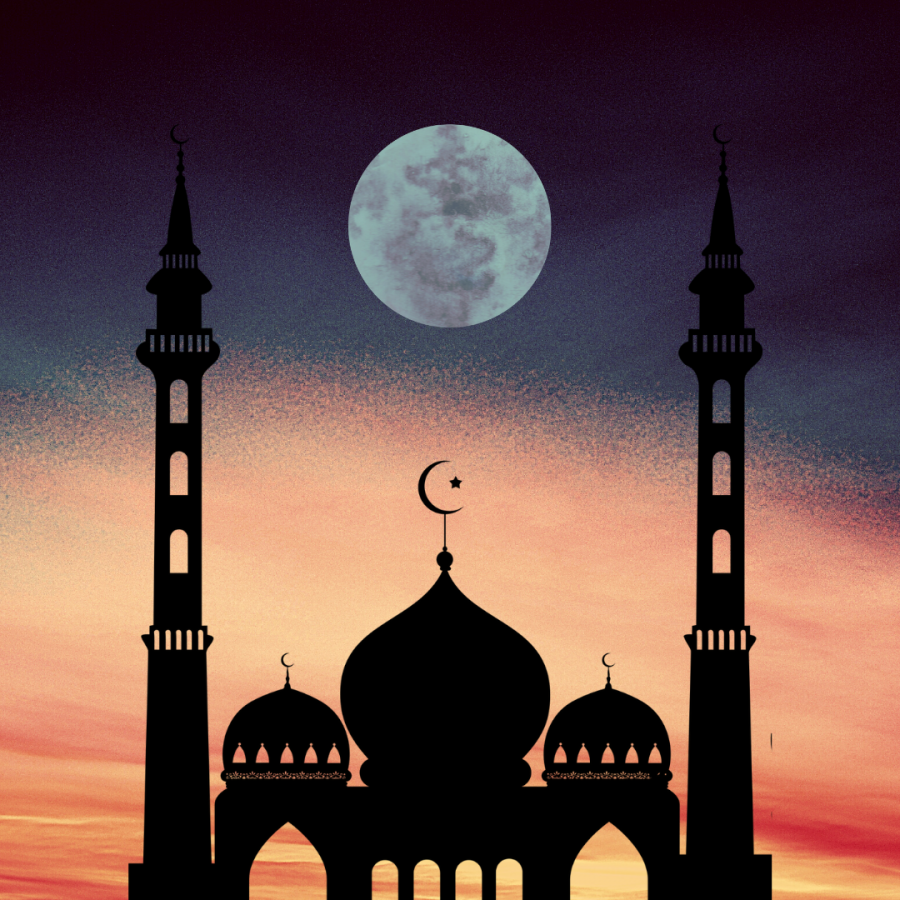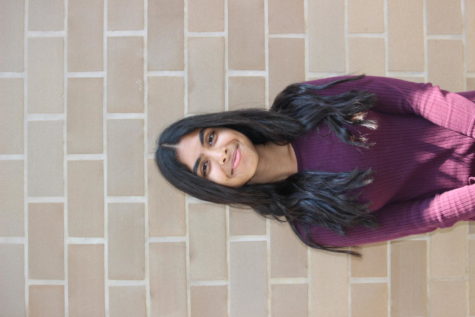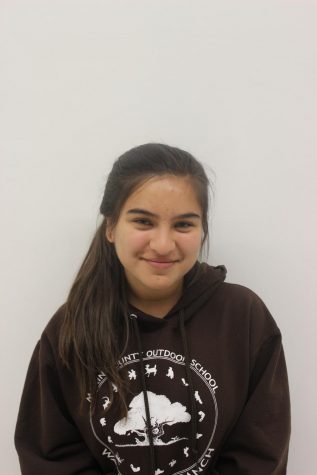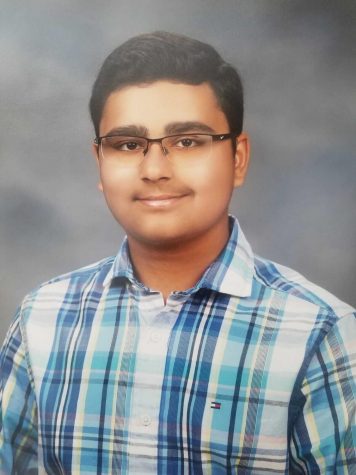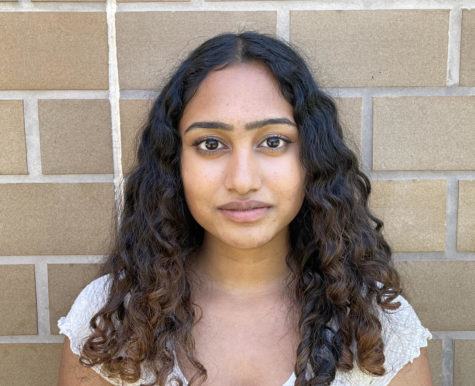What is Ramadan?
The holy month Ramadan is celebrated by over 1.6 billion muslims every year
May 10, 2021
On April 13, the month of Ramadan began for Muslims around the world. The month is of great religious significance in Islam and is observed through Muslims fasting (abstaining from food and drink) for 30 days to better understand sacrifice and privilege.
What is Ramadan?
The Month of Ramadan comes annually and is based on the Islamic Lunar Calendar. This means that Ramadan does not fall on the same day every year, rather it moves backward 10 days. For example, in the year 2020, Ramadan began on April 23 and ended on May 23. This year Ramadan began on April 13. Eid will be on May 13.
In this month, Muslims are asked to refrain from eating and drinking from sunrise to sunset for 30 days to get closer to God. Fasting is one of the pillars of Islam which is why Ramadan is practiced all over the world. In addition to fasting, Muslims are asked to donate as much to the poor as they can, as charity is also one of the pillars of Islam. The idea of these practices is to ensure Muslims understand the privileges they have and feel sympathy for those less fortunate than themselves. It is a time to highlight the importance of sacrifice.
Another very important part of Ramadan is that the Shaytan (Devil) is locked away. Generally, in other parts of the year, the Shaytan is free. In Ramadan, however, he is locked up and can not persuade people to do bad deeds. This is why it is believed people have fewer urges to do bad things in the holy month of Ramadan. Muslims are also asked to be generous in charity during Ramadan when compared to any other time of the year. They are required to give ‘Zakat’, which is the amount of money that equals 2.5% of your savings for one year. If one does not have the financial capabilities to donate, they are not asked to do so.
What is permitted and what’s not?
Everyone interprets the idea of abstaining from food particles passing through your mouth and nose differently, but as society has progressed, certain practices have to be reconsidered/changed. Muslims look to imams (Islamic religious leaders) to understand what is permissible during Ramadan and what isn’t. Given that there are tens of thousands of scholars all over the world, interpretations vary heavily, but generalizations can be made on what practices are permitted and what isn’t.
Brushing your teeth is something that is based heavily on each scholar’s interpretation of the restrictions of Ramadan. Generally, in today’s modern age, brushing your teeth while fasting is permitted and acceptable. The same is true with swallowing saliva and accidentally eating food. Neither will break your fast.
Recently, modernization can most effectively be seen with the COVID-19 vaccine. During this Ramadan, imams all around the world have said that getting the COVID-19 vaccine is not only okay but encouraged while fasting.
Something important to note about Ramadan is that although it is highly recommended to fast, there are exceptions for many circumstances. If one is pregnant, elderly, or unable to complete the fast for health reasons, they are excused from the practice. Furthermore, children are only expected to begin the practice of fasting close to or when they hit puberty. Travelers are also exempt from fasting if the distance is very long (around 48 miles). It is required that people who were exempt from fasting during the month of Ramadan fast later when they can do so. For example, if a person misses a fast because he was traveling, he is required to make up that fast later in the year.
Why is Ramadan celebrated?
In Islam, Ramadan is a very important event because in this month, the Prophet Muhammad (peace be upon him) received the Islamic holy book: The Quran. According to Al Islam the Quran “lays down for them the law and commandments, codes for their social and moral behavior and contains a comprehensive religious philosophy.”
How is it celebrated?
With Ramadan also comes small celebrations throughout the day, with one of them being “Iftar” the breaking of the fast. During the 30 days of Ramadan, Iftar occurs at the time of sunset each day. Since the time of sunset changes each day, the time of Iftar does so as well. For example earlier in the month the fast will be broken around 7:40 p.m. but as the days go on, the fast will be broken later on. It is highly recommended to break the fast with a date. Additionally, many Muslims drink milk since it is nutritious and has a lot of energy. From Iftar to sunrise, Muslims are allowed to eat and drink. In terms of starting the fast, Muslims wake up before sunrise (around 4:00 a.m.) to eat breakfast, otherwise known as “Sehri”. The moment the sun rises, no food or water is then allowed in the body. Many families eat Sehri together and pray afterward.
Tarawih is also an essential part of Ramadan. After people have had their Iftar and dinner, most of them proceed to go to the local mosque to engage in the act of Tarawih. Tarawih is a special prayer that Muslims perform only in Ramadan. There are 20 total parts of the prayer. These are done in sets of 2, so there would be 10 total sets of 2 parts each. These prayers are not required but are recommended, so if somebody is busy, they can skip that night’s prayer.
There are many important days in Ramadan, such as Laylatul Kadr, also known as the night of the power, which is considered to be the most powerful night of the month. This holiday is said to fall on one of the last odd days of Ramadan (21, 23, 25, 27) however many scholars believe this holiday falls on the 27th day of Ramadan. On this day, Prophet Muhammad (peace be upon him) was visited by Angel Jibreel, urging him to start reciting the Quran (the holy book of Islam). Before the pandemic, many mosques held full night gatherings during the last odd nights of Ramadan so many could come and pray the whole night.
Ramadan lasts a total of 30 days, and then comes Eid al-Fitr: the festival of breaking the fast. On Eid, it is required for people to not fast as Ramadan is officially over. Many families come together to celebrate, starting with an Eid Prayer. Muslims dress up festively, eat traditional food and hang out with friends. It is also customary that elders give the younger children money or “Eidi” as a gift to celebrate the holiday. Eid is also a time where many Muslims donate money to non-profit organizations in the hope that other families can celebrate Eid as they wish.
Ramadan is a time of sacrifice and giving for all Muslims. Over 1.6 billion Muslims participate in the practices of Ramadan. Even during the COVID-19 pandemic Muslims have found ways to come together and enjoy their holy month.

